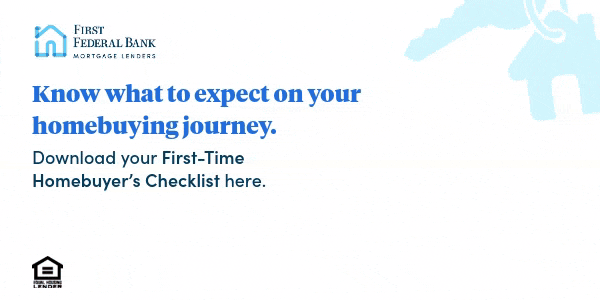As a first-time homebuyer, it’s easy to become laser-focused on figures such as purchase price, down payment, and mortgage rates. However, other expenses—including closing costs—must be included in your budget.
To avoid unexpected expenses on closing day, here is what you need to know about calculating closing costs.
What Are Closing Costs?
Closing costs are the fees, charges, and advanced payments due before a mortgage can be finalized. Most closing costs fall into one of five buckets:
1. Title and Attorney Fees
These fees cover the cost of ensuring there are no liens against the property or other obstacles that would prevent the seller from legally transferring ownership of the house. Additionally, you will be asked to cover the legal expenses needed to make the transaction official.
However, it’s important to note that the homebuyer has the legal right to shop around for these services and is not obligated to use the seller’s settlement agent.
Examples of these closing costs include:
- Title search
- Title insurance
- Recording and registration fees
- Notary and attorney services
2. Prepaids and Escrow
Prorated property taxes and your first year’s home insurance premium will be due at closing. Going forward, these can be rolled into your monthly mortgage bill via escrow, but you will need to make the initial payment. If there is a gap between when you close and when you make your first mortgage payment, you may also need to prepay the interest on the loan that will accrue during that time.
During the sales transaction, money collected toward closing costs will be held by a third-party escrow agent. This is another instance when you should not feel obligated to use the seller’s chosen agent. Shop around and find the best fit for you.
3. Loan-Related Fees
Also known as lender fees, these closing costs cover services provided by the lender during your loan application, approval, and processing. If you plan to pay discount points to reduce your interest rate on the loan, that payment will also be factored into your closing costs.
Other examples of loan-related closing costs include:
- Origination charges (not all lenders charge this fee)
- Credit report
- Underwriting
- Wire transfers
- Courier fees
4. Property-Related Fees
You may need to pay for a survey to confirm property boundaries, and both mortgage lenders and the Federal Emergency Management Agency (FEMA) require a flood zone evaluation before closing. Some expenses, such as termite inspections and property appraisals, may be classified as either loan-related fees or property-related fees.
5. Mortgage Insurance
Buyers with conventional home loans who put down less than 20 percent of the home’s purchase price are required to pay private mortgage insurance (PMI) to protect the lender’s investment. PMI can be removed once you reach 20 percent equity.
This closing cost should not come as a surprise because lenders are required to include this information in your loan estimate and closing disclosure documents. A mortgage calculator can help you estimate your mortgage payment—including principal and interest, taxes, insurance, and PMI—so there are even fewer surprises along the way.
Closing Costs FAQs
Now that you have a better idea about what to expect, let’s look at some of the common closing cost questions we hear from first-time homebuyers.
How much should a first-time homebuyer budget for closing costs?
In general, closing costs average about 2-6 percent of the home’s purchase price. However, several factors can impact the exact amount, including:
- Price of the house
- Amount of down payment
- Type of loan
- State where the house is located
For a typical $250,000 house in Michigan, a first-time homeowner can expect to pay between $5,000-$15,000 in closing costs, whereas the average $600,000 home in Massachusetts will cost between $12,000-$36,000 to finalize the purchase.
Who pays closing costs and when?
Traditionally, the buyer pays most of the closing costs, but there may be room for negotiation depending on the market and the seller’s motivation to close the deal.
Some closing costs will be paid prior to closing day, but most funds are due the day of. Your lender will provide you with a closing disclosure statement in advance that includes your final loan costs, real estate fees, and cash-to-close amount.
Costs paid before closing:
- Earnest money or good faith deposit
- Appraisal
- Home inspection
Costs paid at closing:
- Points
- Credit report
- Flood zone appraisal
- Tax monitoring services
- Government fees
- Homeowners association (HOA) fees
- Origination fees
- Attorney fees
- Homeowners insurance
- Mortgage insurance
Is the down payment included in closing costs?
No. Although your down payment is not technically considered a closing cost, it is often bundled in with closing costs and included in the cash-to-close amount on your closing disclosure statement.
Who pays the real estate agent commission?
Traditionally, the seller would pay a commission to their agent and the buyers’ agent, in addition to the portion of the property taxes and HOA fees incurred up to the point of closing.
However, in April 2024, a preliminary legal settlement between home sellers and The National Association of Realtors potentially changed how real estate commissions are paid. Effective mid-August 2024, sellers are only responsible for their own agents’ commissions, and buyers will negotiate commissions directly with their agents and sign a buyer’s agency agreement.
Are closing costs negotiable?
If it’s a buyer’s market, you may be able to negotiate with the seller to pay some of your closing costs, such as attorney fees, property appraisals, home inspections, and mortgage discount points. However, in high-demand markets with limited inventory, seller concessions are less likely and usually only offered if a home is outdated or the seller has it overpriced for the area.
Understanding the True Costs of Buying Your First Home
This blog post is just the tip of the iceberg when it comes to understanding closing costs and how they fit into your homebuying strategy.
The mortgage lenders at FFB can talk you through the entire journey, from determining what type of home loan is the best fit for you to finalizing your mortgage at closing.
Contact us, and one of our experienced lenders will be in touch to answer questions or help you start your home loan application.
The content on this site is intended for informational purposes only and should not be considered accounting, legal, tax, or financial advice. First Federal Bank recommends that customers conduct their own research and consult with professional legal and financial advisors before making any financial decisions. Links to third-party websites may be provided for your convenience; however, First Federal Bank does not guarantee the reliability, accuracy, or safety of the information, products, or services offered on these external sites. We are not liable for any damages resulting from the use of these links, and we do not investigate, verify, or endorse the content or opinions expressed on any third-party sites.


-1-1.png)